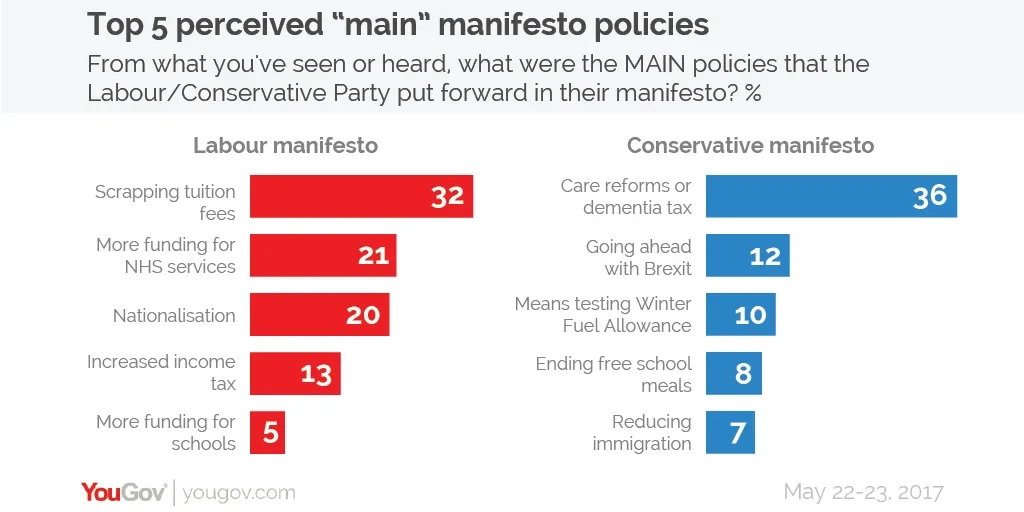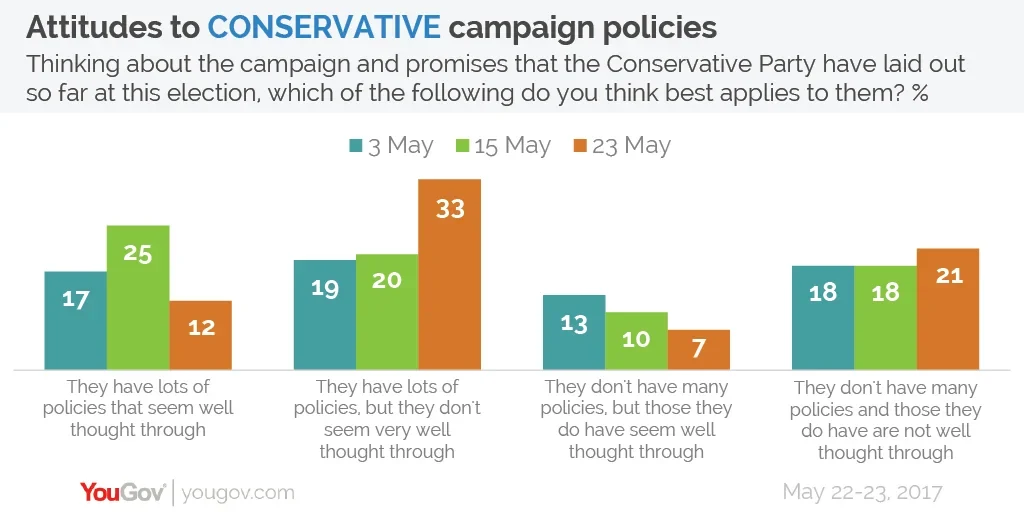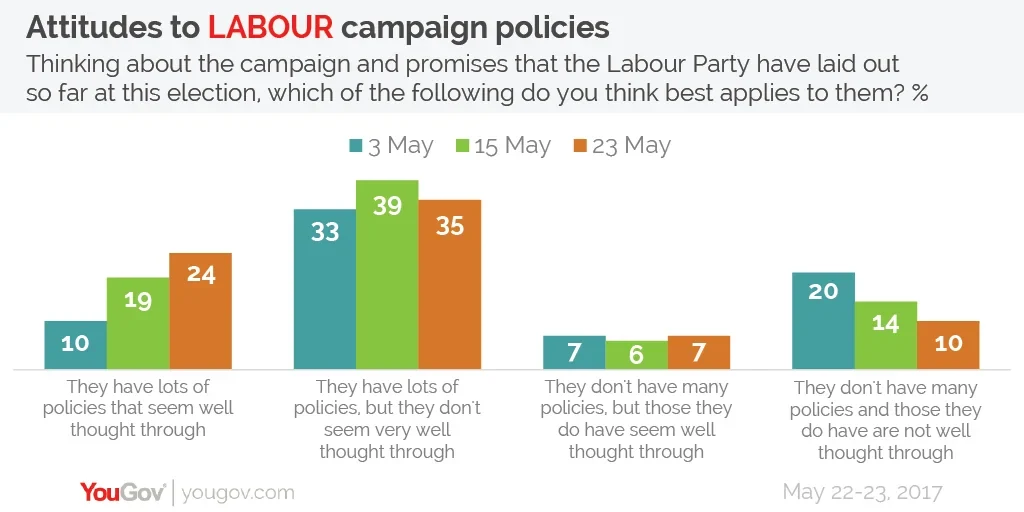Labour's manifesto launch has gone much better for them than the Conservatives'
One of the reasons manifestos don't usually matter is that very few people actually read them. Parties may put forward lots of enticing propositions, but if no one knows about them they can't make any difference.
Therefore, the first thing a policy needs to do to have any impact at all is to be noticed. Earlier this week we asked people, in their own words and without any prompting, if they could remember any of the promises that Labour or the Conservatives had made in their election manifestos.
For both parties around 60% of people could remember at least something connected to a manifesto promise (though in many cases that was barely more than "tax the rich" or "Brexit"). And in this sense, the two parties’ proposals gained a similar resonance. However, there was a big contrast in the types of policy that people took away from the two manifestos.
For Labour the more “positive” policies received clear cut-through: 32% of people recalled the pledges to axe tuition fees, 21% remembered promises to increase NHS funding, 20% recalled commitments to nationalise the railways, Royal Mail and the National Grid. All of these are also policies which our polling has found the public support, and which are relatively clear and easy to understand.

For the Conservatives, though, only one policy was recalled by more than a fifth of voters: the changes to care funding (or, to use the more negative term used by many respondents, the "dementia tax"). The one cut-through promise from the Tory manifesto was both unpopular and complicated, a stark comparison to the more straight-forward and popular pledges made by Labour.
The other Tory proposals that were noted by the public did not achieve a great amount of recall. Policies around going ahead with Brexit was remembered by 12%, while means-testing the Winter Fuel Allowance was acknowledged by one in ten (10%).
It is worth noting that even when people do recall policies, they are not necessarily what they base their vote on. Ballot box behaviour is much more about the broader perceptions of the parties, such as what it stands for, its leaders and their perceived competence. Here too, however, there seems to be clear evidence of damage that the Conservative manifesto caused the party.
Before the manifesto were published, 45% of people thought the Conservatives had plenty of policies, with 35% thinking they were well thought-through, while 38% believed they weren’t. But following the manifesto launch, only 19% thought the party’s policies were well thought-through, while over half (54%) did not.

For Labour, the traffic went the other way. Before its manifesto launch only 25% of people thought the party had well-thought through policies, but following publication, this figure rose to 31%.

Given a key plank of the Conservative party's offering to the country is the claim that it is the strong and steady party of competence, the notable drop in the proportion of people thinking they have well thought-through policies for the country should be worrying. But there are still two weeks until poling day so there is time enough for this to change.
Photo: PA






